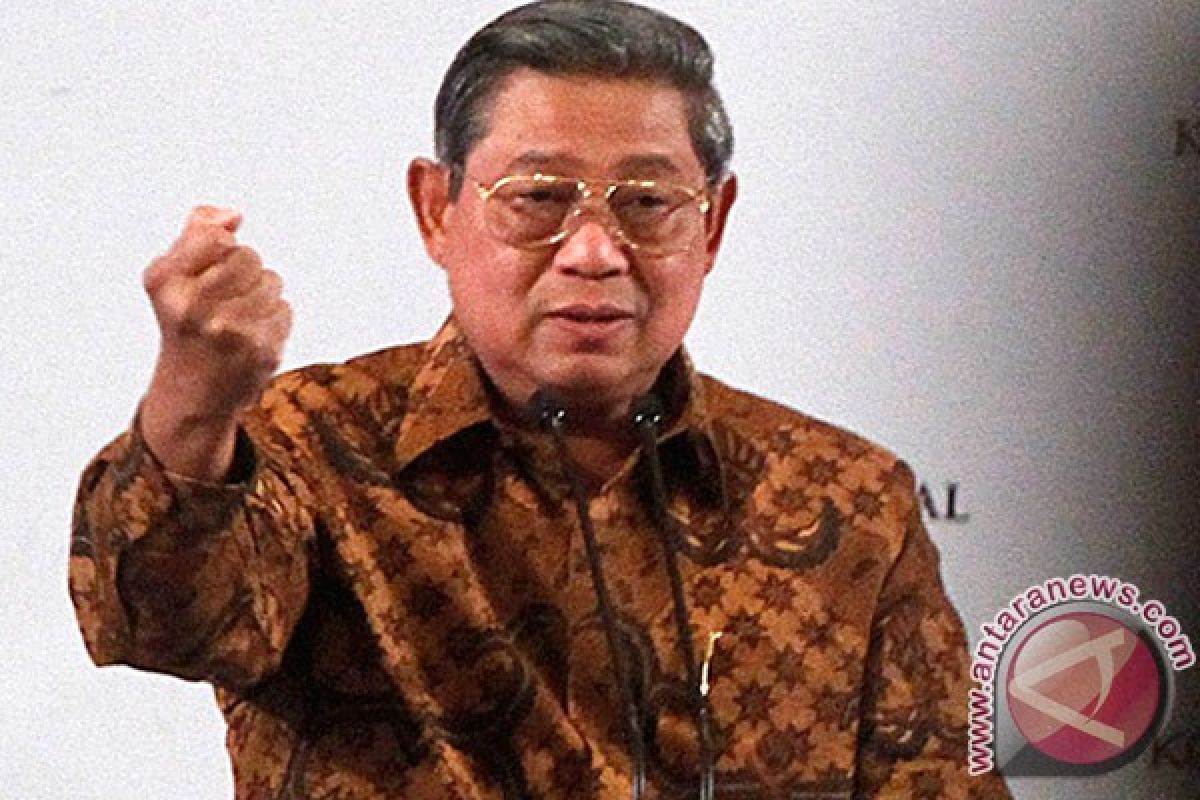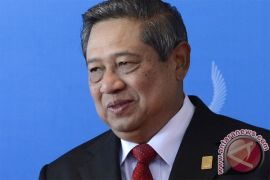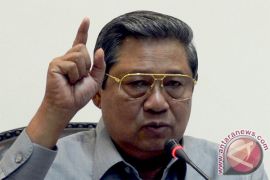"There is much room for strengthening long-term bilateral cooperation."Jakarta (ANTARA News) - President Susilo Bambang Yudhoyono on Wednesday concluded his two-day visit to Malaysia after attending the 9th annual consultation meeting with Malaysian Prime Minister Najib Razak.
The President arrived in Kuala Lumpur on Tuesday and left for New Delhi at 1.45 pm local time on on Wednesday for a working visit to India.
During his stay in Malaysia, President Yudhoyono discussed bilateral cooperation and regional issues of mutual concern.
The President and Najib discussed expanding bilateral cooperation in various areas, including human resources, as well as the concerns of Indonesian workers in Malaysia.
At a joint press conference with Najib on Tuesday night in Puterajaya, President Yudhoyono said there was `plenty of scope to expand bilateral economic cooperation, given the positive economic growth in both countries`.
"There is much room for strengthening long-term bilateral cooperation," he stated.
"The Indonesian economy has been growing at a fast rate in recent years, which offers opportunities for cooperation with various parties, including Malaysia," the President continued.
"Malaysia`s economy has grown well too, so there is a lot of potential for cooperation in the future. We will think about a strategic economic cooperation," he said.
Meanwhile, the Malaysian prime minister said the economic relations between the two countries over the past several years had significantly improved.
"Investment is on the rise. I believe the economic cooperation between both nations will continue to increase. Indonesia`s economic achievements will offer bigger opportunities and we will increase our cooperation," Nazib noted.
"Indonesia and Malaysia will continue to reduce economic barriers, and I am sure we will together achieve the ASEAN 2015 targets," he added.
At the annual consultation meeting, President Yudhoyono evaluated the implementation of the Lombok Agreement signed by both countries in 2011.
"The Indonesian government has monitored the implementation of the Lombok Agreement on the protection of Indonesia workers in Malaysia," he stated.
"Indonesia and Malaysia had agreed to use the Lombok Agreement as a framework for the protection of Indonesia workers in Malaysia," the President pointed out.
"However, the framework is not being adhered to sometimes. The Lombok Agreement regulates how to protect Indonesian workers in Malaysia," he said.
In response, Najib said there was some problem with regard to the fees of manpower supplying agencies, but the issue had been resolved. "In the field of manpower, the Lombok agreement is a framework agreement to which we are committed, but we are facing a few problems at the implementation level," the Malaysian prime minister explained.
During the 8th consultation meeting in Lombok (Indonesia) last year, Indonesia and Malaysia agreed to amend the agreement on Indonesian domestic workers' recruitment and placement, which was signed in 2006.
Besides discussing issues regarding Indonesian workers in Malaysia, the two countries also signed a memorandum of understanding (MoU) on social welfare and community development.
Indonesian Social Affairs Minister Salim Segaf Al Jufri noted that the MoU was one of the outcomes of the 9th annual consultation meeting
"The MoU covers cooperation in the exchange of information, exchange of experts, reciprocal visits, joint training, workshops and seminars, and the protection of intellectual property rights," he continued.
Salim Segaf pointed out that a number of programs under the MoU had already been developed and were ready for implementation.
"We don`t want the MoU to simply remain on paper," he said, adding that the implementation of the agreement would be evaluated at the next annual meeting between the two countries.
While discussing regional issues at the annual consultation meeting, President Yudhoyono highlighted the importance of making joint efforts to prevent open conflicts in the Asia-Pacific region.
"The ASEAN must play a bigger role in the region and to ward off threats of a possible open conflict," he said.
"That does not mean that ASEAN intervenes in the domestic affairs of a member country or takes over the affairs of member countries. The ASEAN must help find a solution to the problem," the President pointed out.
"The ASEAN did a great job when dealing with the border conflict between Thailand and Cambodia, as well as with Myanmar when the country was facing sanctions from Western countries," he said.
During his stay, President Yudhoyono was recognised for his contribution to regional and international stability, particularly when Indonesia chaired ASEAN last year.
"Thank God, the ASEAN leaders at the time were able to build consensus on how ASEAN could be part of the solution to the problems faced by its member countries. This cultural approach and the method, I think, need to be maintained and used in the future," he said.
President Yudhoyono stated that a regional-level conflict management system must be put in place to tackle future problems.
"Although we have a system to prevent open conflicts and clashes, there is still no guarantee that they will never happen in the future," he noted.
The President made the statements during his lecture at the University of North Malaysia, after receiving an honorary degree from the institution.
The Indonesian head of state received an honorary Doctor of Philosophy in Leadership of Peace.
The award was presented to the President by the King of Malaysia, Seri Paduka Baginda Yang di-Pertuan Agong Tuanku Al Haj Abdul Halim.
"The honorary doctorate will be given to the President for his contribution to regional and international peace efforts," Presidential spokesman Julian Pasha had said earlier.
(T.A014/INE/KR-BSR/A014)
Reporter: by Andi Abdussalam
Editor: Priyambodo RH
Copyright © ANTARA 2012









